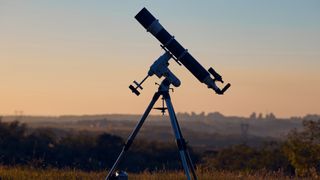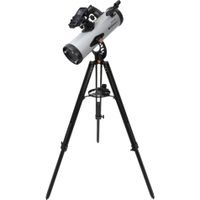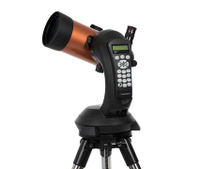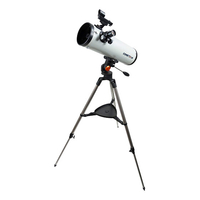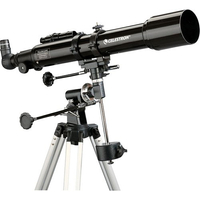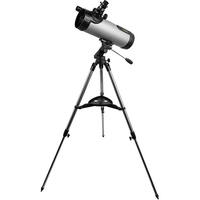If you're looking for telescopes at Best Buy then you're in the right place as we've discovered the best models the online retailer has to offer and put them in the useful guide below.
Fortunately, there's plenty of stock so when you're looking for telescopes at Best Buy, you might even find some of the best telescopes on the market and you can pick up some great telescopes deals too. Best Buy often offer budget-friendly deals for telescopes and we keep this page updated all year-round so when new offers become available, you'll find them here.
Not ready for a telescope? Read our best binoculars guide More top deals: Telescopes on Amazon See the latest discounts: Telescopes at Walmart
If you know what make of telescope you want, or which you normally trust, then it might be worth checking out our specific guides for Celestron, Sky-Watcher, Meade and Orion telescope deals.
While you will find some cost-effective telescopes and offers below, we do also have guides for budget telescopes for under $500, best telescopes for beginners and best telescopes for kids, if you're looking for a stargazing experience on a budget or to inspire a budding astronomer. However, we've found the best telescopes at Best Buy and the deals they offer, so if you're in the market for a bargain, this guide is for you.
It's worth noting that although deals for telescopes at Best Buy can be a little harder to find than on other sites like Amazon or Walmart, they are out there and you'll find the best picks below. We've also included some buying advice, in case you need a helping hand with what to look out for.
Today's best telescope deals at Best Buy
Buying advice
There are three basic types of telescopes: refractors, reflectors and catadioptrics. Refractors are great for highly magnified views of planets and moons, while reflectors offer better views of deep-sky objects, star clusters and galaxies. Catadioptric telescopes correct some of the visual problems found in these older styles – such as chromatic aberration – but they tend to be a little more expensive.
Reflectors
Reflectors are usually either Newtonian or Dobsonian in design. Newtonian telescopes are good for a wide range of viewing targets and are often useful for astrophotography – however, they require a lot of maintenance and can be complicated to set up, whereas Dobsonians are more straightforward.
Refractors
This type of telescope is ideal for beginners, offering a straight-forward assembly and a lower price point. They do, however, tend to suffer from chromatic aberration, where bright objects appear to have a kind of halo. This doesn't ruin the viewing experience, so don't let this put you off too much.
Catadioptric
Catadioptric telescopes fall into two broad categories: Maksutov-Cassegrain and Schmidt-Cassegrain. Schmidt-Cassegrains traditionally have bigger apertures, while Maksutov-Cassegrains usually have small apertures. As such, the Schmidt-Cassegrain is usually better for astrophotography and for broader views, while the Maksutov-Cassegrain is great for sharp views of planets and moons. Both types often come with a computerized GoTo system, which can work out which way the telescope is pointing and automatically adjust it to align with chosen targets.
Choosing a telescope
With all these variations, it can be tricky to figure out which telescope is best for you. We recommend taking two main things into consideration: personal budget and what you’d prefer to view in the night sky.
Lower budget models will usually be reflector or refractor telescopes, while catadioptrics are more expensive. If you’d prefer high magnification views of planets and moons, go for either a refractor or a Maksutov-Cassegrain design. For views of deep-sky objects, star clusters and galaxies, opt for a reflector or a Schmidt-Cassegrain telescope. And if you need more detailed guidance, have a look through our piece on the best telescopes, which goes into more detail on all of the above.
